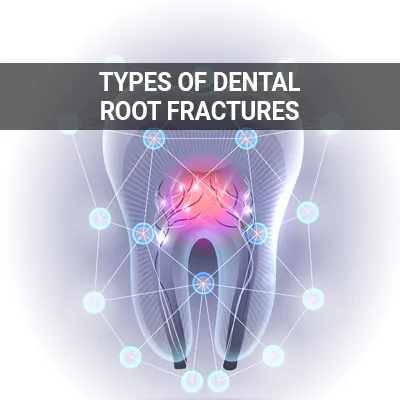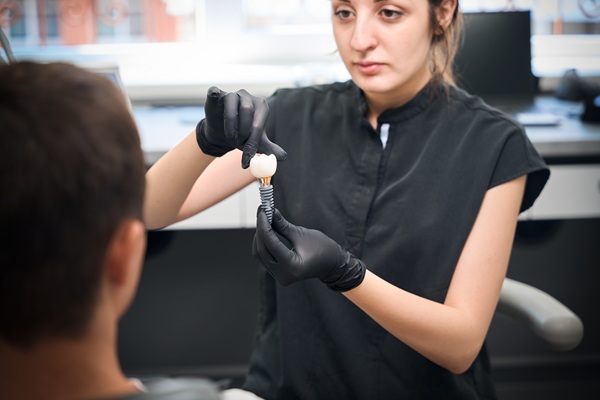7 Signs You Need Endodontic Surgery Alpharetta, GA
It is important to take note of the seven key signs that indicate the need for endodontic surgery. Endodontic surgery may seem scary, but it is a sure way to save natural tooth structure from severe decay when other treatments are no longer possible. Endodontic surgery, often referred to as root canal treatment, takes place inside the tooth's pulp chamber to preserve the teeth.
Endodontic surgery is available at Windward Parkway Dentistry in Alpharetta and the surrounding area. We can help curb or eliminate tooth pain and sensitivity while preserving as much natural tooth as possible. Call us today at (770) 814-6224 to schedule an appointment or learn more about our services.
Importance of Endodontic Surgery
It is normal to experience fear regarding any surgery, but with advancements in technology and anesthetics, endodontic surgery has become painless. In fact, endodontic surgery can eliminate much of the pain, discomfort, and sensitivity that patients feel with a severely decayed tooth. Often, surgery is the only way to remove the decay and save a patient's natural tooth.
Endodontic surgery is crucial for many reasons, including detecting small fractures or hidden canals not easily visible on X-ray images, removing calcium deposits in root canals, and treating damaged root surfaces or the surrounding bone of the tooth. In most cases, surgery is recommended or required when all other treatments are no longer possible due to the amount of decay or damage in a tooth. The most significant advantage of endodontic surgery is the ability to save the natural tooth, although some cases may require a crown.
“In most cases, surgery is recommended or required when all other treatments are no longer possible due to the amount of decay or damage in a tooth.”
Pain and Sensitivity
Undergoing professional dental cleaning removes leftover food and debris from tight spaces of the mouth. While this debris can be uncomfortable, the discomfort should disappear following the professional cleaning. If pain persists after the procedure, it could be a sign of tooth infection or decay that may require endodontic surgery.
Although it is normal to experience some sensitivity when consuming hot or cold drinks or food, persistent pain can indicate a more significant problem. Pain that continues even after eating or drinking may be due to weak enamel or an infection inside the tooth. The latter problem may require endodontic surgery to repair the damage.
“Endodontic surgery may be necessary if root canal therapy fails to repair the tooth.”
Pain and Tenderness When Touching the Teeth or Chewing
Pain, tenderness, and redness are common signs of an infected root requiring endodontic surgery. These symptoms can often be felt when touching the tooth or surrounding area and when biting or chewing. Although toothaches can be referred pain, or pain stemming from another area of the mouth or face, patients and dentists can often pinpoint the tooth in question due to tenderness and redness in a specific area. Removing the decay or infection from the tooth often eliminates this tenderness and allows patients to eat and chew normally.
“Pain, tenderness, and redness are common signs of an infected root requiring endodontic surgery.”
Check out what others are saying about our dental services on Yelp: 7 Signs You Need Endodontic Surgery in Alpharetta, GA
Swelling, Draining, and Discoloration
Swollen gums and or gums with drainage around a painful tooth are a sign of infection. Patients who experience swelling and drainage of gums should seek treatment as quickly as possible. Without treatment, the infected area can grow and threaten a patient's oral health and necessitate endodontic surgery.
Abnormal discoloration of a specific tooth root is one of the first signs of an infected or dying tooth. When a tooth is infected, its tissues turn dark brown and cause the tooth to appear more brown or yellow. Endodontic surgery is necessary to extract the darkened tooth tissue and helps restore the tooth's appearance.
“Without treatment, the infected area can grow and threaten a patient’s oral health and necessitate endodontic surgery.”
Questions Answered on This Page
Q. Is increased sensitivity to temperature a sign that endodontic surgery is necessary?
Q. What is the importance of endodontic surgery?
Q. Are pain and tenderness when touching the teeth or chewing a sign of a problem?
Q. What should I do about a dental abscess at the bottom of the tooth's root?
People Also Ask
Q. Are there any alternatives to root canals?
Q. How can someone prevent the need for a root canal?
Q. What are some of the signs indicating a need for tooth extraction?
Q. What are the services offered endodontists vs. general dentist?
Dental Abscess at the Bottom of the Tooth’s Root
A dental abscess is an infection that contains pus and can often reside at the bottom of a tooth's root. Abscesses can be invisible when they are inside the tooth but are often detected when surgery is initiated. However, pain and tenderness in a tooth likely indicate the presence of an abscess. Treating the area through surgery removes the infection and the associated abscess.
Notice and Feel a Bump Near the Tooth
Aside from an abscess, other small bumps may form near the tooth somewhere on the gumline. Infection is often the primary cause of bumps on the gums. According to Healthline, these bumps can be a cyst, canker sore, fibroma, pyogenic granuloma, mandibular torus, or an oral cancer sore. Before undergoing endodontic surgery, we must first determine the type of bump or sore and its cause. In most cases, these bumps will dissipate with surgery. In more severe cases, as with oral cancer, the patient may need a different type of surgery.
“…bumps can be a cyst, canker sore, fibroma, pyogenic granuloma, mandibular torus, or an oral cancer sore.”
Frequently Asked Questions
Q. What are the types of endodontic surgeries?
A. Endodontic surgeries include apicoectomies, calcium deposit removals, and root canal treatments. An apicoectomy is a surgery to remove an infection in the root that results after root canal treatment. Calcium deposit removal involves cleaning and clearing the area from calcium accumulation to get the area ready for a root canal. Root canal treatments are the most common type of endodontic surgery to remove the infected pulp from the inner canal.
Q. Does endodontic surgery hurt?
A. Advancements in dental technology and improvements in anesthesia have allowed endodontic surgeries to be pain-free. Patients may experience slight discomfort and tenderness following the procedure, but that should dissipate within the first few days. We will also prescribe antibiotics and pain relief medication to reduce swelling, inflammation, and discomfort.
Q. Can I drive after the surgery?
A. This largely depends on the type of surgery the patient undergoes. In root canal treatments, patients can typically drive themselves home as we administer only a local anesthetic. For more severe conditions in which we use general anesthesia, the patient must arrange transportation the day of the procedure. The patient will be notified of this during the consultation appointment.
Q. How much does endodontic surgery cost?
A. The cost of surgery depends on the type of treatment and severity of the condition. We encourage patients to speak with their insurance provider prior to receiving treatment to better understand what their plan entails and what their co-pays may be.
Q. How long will it take to resume normal activities after surgery?
A. Patients should be able to resume normal activities the following day. However, if they feel pain, dizziness, or fatigue, rest is highly recommended. In cases of worsening symptoms, we encourage patients to contact us as soon as possible to schedule a follow-up.
Endodontic Terminology
Helpful Related Links
- American Dental Association (ADA). Glossary of Dental Clinical Terms. 2024
- American Academy of Cosmetic Dentistry® (AACD). Home Page. 2024
- WebMD. WebMD’s Oral Care Guide. 2024
About our business and website security
- We accept the following payment methods: Cash, Check, Discover, MasterCard, and Visa
- We serve patients from the following counties: Fulton County
- We serve patients from the following cities: Alpharetta, Bethany Crossing, Herring Township, and Milton
- Norton Safe Web. View Details
- Trend Micro Site Safety Center. View Details
Back to top of 7 Signs You Need Endodontic Surgery











